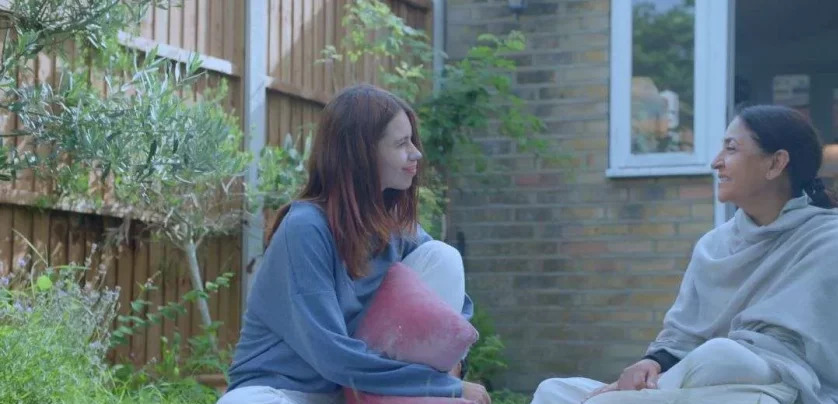The FilmSoc Journal is back for the 30th edition of the Raindance Film Festival, the largest independent film festival in the UK.
Aadesh Gupta reviews Pushan Kripalani’s sophomore feature Goldfish, a naturalistic familial drama starring Kalki Koechlin and Deepti Naval.
“You only know half your story.”
This was writer-director Pushan Kripalani’s answer to a question about the ambiguous past of one of the characters in his second feature film, Goldfish. It’s a suitable statement for a film concerned with the effects of dementia and the dynamics of a mother and daughter attempting to understand each other. For a genuine examination of such themes, a film’s narrative has to have some degree of freedom and an almost limitless sense of possibility. Kripalani’s desire to achieve this was made evident in the post-screening Q&A, but many of his choices here seem to stifle a script that already lacks the layers needed to explore its complex topics.

Consider the cultural and linguistic dissonance between the half-English Anamika (Kalki Koechlin) and her traditional Indian mother Sadhana (Deepti Naval), who suffers from dementia. As a Hindi speaker living in the UK, I understand the sense of division inherent to a lifestyle that consists of two languages. Kripalani attempts to showcase this by staging various moments of linguistic distance, but these felt stilted and disengaged me.
Comedy is another element of the film that seemed intended to achieve some degree of realism but felt contrived; there’s a scene where some members of a neighbourhood, after helping to fix Sadhana’s dislocated shoulder, share alcohol from a bottle in a bathroom. The comic relief here felt as if it were edging toward an English sitcom instead of emanating naturally. Consequently, the film’s tone became more insistently turbulent rather than convincingly raw.
Certain story beats manifest as rather feeble plot points, particularly the flushing away of a goldfish as the root of a long-lasting grudge. I am not too concerned about these trivialities because it’s an aspect I believe genuinely contributes to the realism. Small occurrences can create big brakes in people’s lives – that’s natural. In this case, Sadhana disposes of Anamika’s goldfish and falsely informs her that it was alive in order to cause her pain. Regardless of their surface malice, these moments possessed the potential for meaningful human drama, and yet still lacked the intended impact. They are another element that, despite their intended naturalism, seemed surprisingly artificial. Noah Baumbach is a filmmaker who handles such moments well by situating them amongst people with authentic flaws as well as his characteristic overlapping dialogue. Here, the script is too thinly written for any of the conflicts to appear genuine.

Visually, it forgoes the style and lavishness present in some of the other Raindance entries for the sake of more “realism”, but this was yet another aspect of the film that left me dissatisfied. Such a formal approach has worked well in other films, particularly those of Iranian cinema. The likes of Asghar Farhadi and Abbas Kiarostami always imbue their simplicity with immersion and nuance, thereby enhancing the subtle storytelling. There’s more to this category of film than just dampening the frame and emptying it of all flair. Kripalani avoided seeking a DOP for the project so he could shoot it himself, but I can’t help but think that I would have preferred it otherwise. Again, his cinematography is well-intentioned in its effort to evoke realism, but it’s also too contrived to be realistic.
The common issue here seems to be the overabundance of intentionality. Kripalani may have aimed to create an experience that felt relatable and purposefully ambivalent, but all the aforementioned aspects come across as overly calculated. The process of producing said “realism” is too formulaic and ends up constraining the film. There is a clear conflict between decisiveness and authenticity in creative choices, resulting in the work seeming naïve due to its misdirected efforts at creating a so-called sophistication.
Nonetheless, the last few moments of eventual forgiveness, permeated with Indian classical music, are emotionally satisfying in their poignancy. However, even in consideration of this and the impressive cast, out of which Naval gives the best performance, the flaws are constantly apparent. Despite my overall dissatisfaction with the film, I look forward to future works from directors like Kripalani that contextualise the modern family within Indian culture. It’s an area that deserves to be explored more frequently through cinema in my eyes, but with a stronger narrative set-up and more comprehensive detail.
Watch the trailer for Goldfish here:





[…] Originally published for UCL Film and TV Society Journal on 10/12/2022 […]